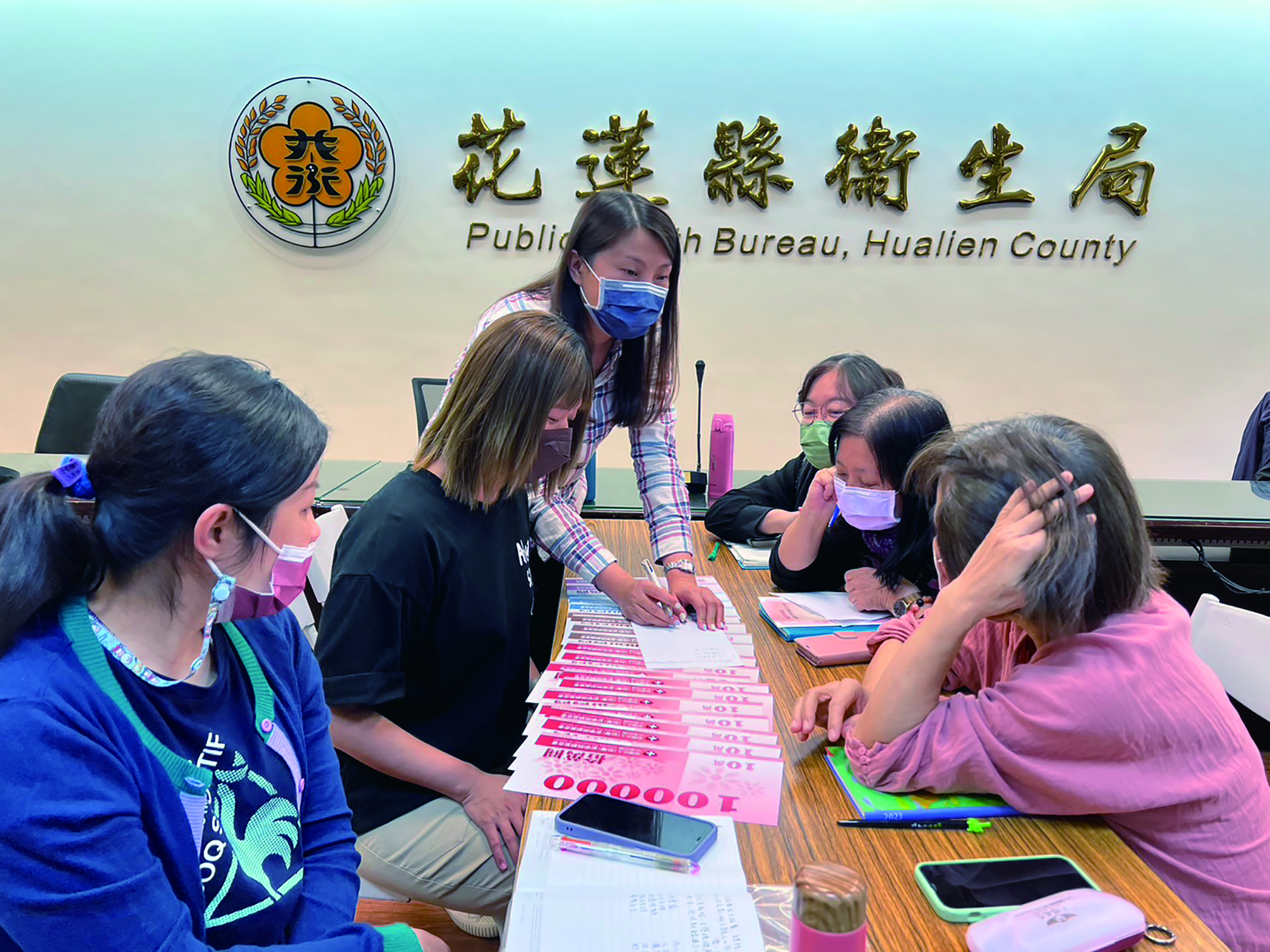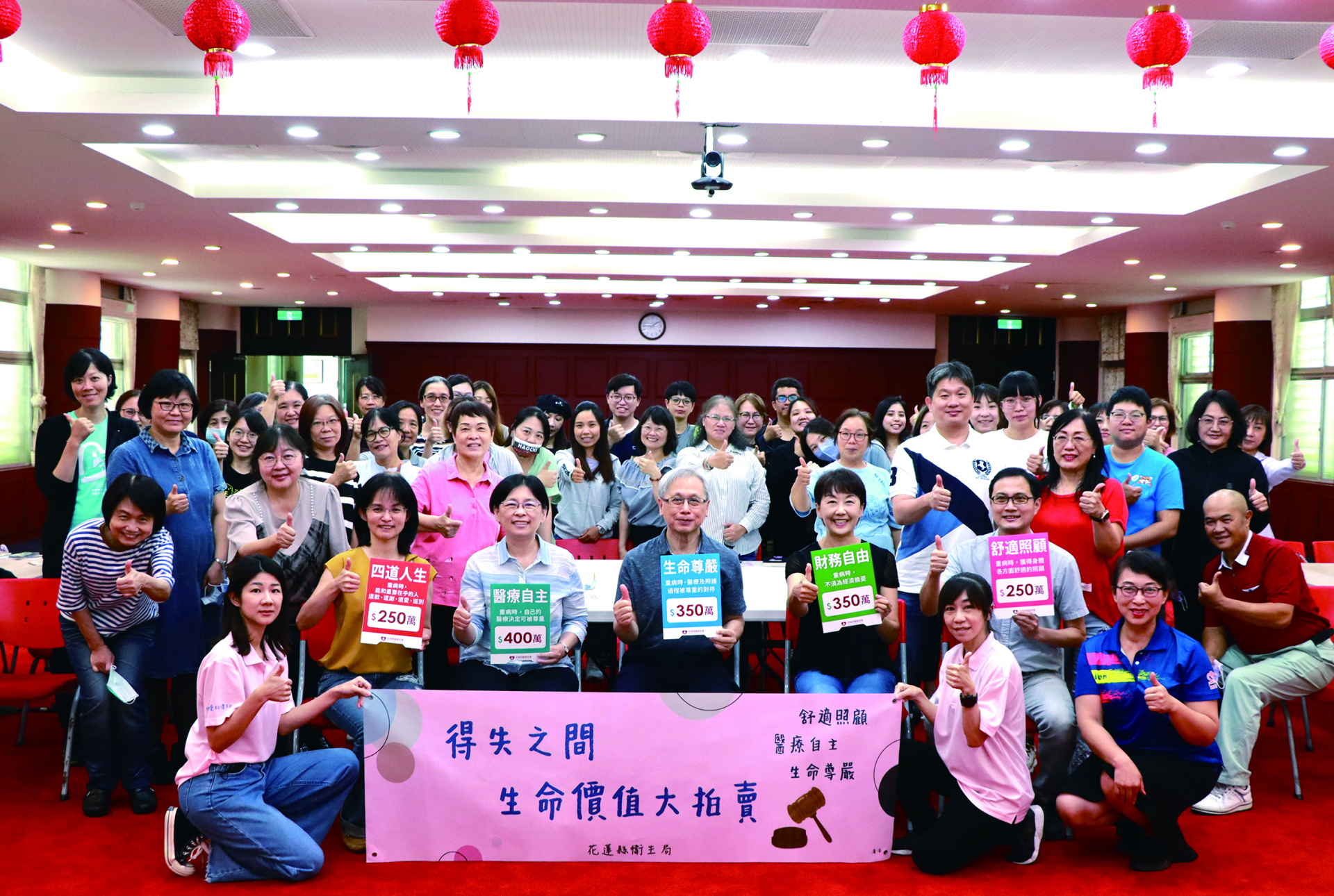In 2022, Hualien faced the peak of the COVID-19 pandemic. During this time, there were frequent cases where individuals experienced rapid deterioration after contracting the virus, particularly among the elderly or those with long-term disabilities. As the illness progressed to its final stages, patients who had previously signed a Do Not Resuscitate (DNR) order had their end-of-life medical expectations clearly communicated to hospitals and families. In such cases, medical professionals and families would respect the patients’ wishes and aim to facilitate a peaceful passing.
However, for those who had not signed a DNR, decisions varied widely among different stakeholders—whether they were healthcare professionals, family members, or others—making consensus difficult to achieve. Most individuals had not previously contemplated medical and end-of-life choices, leaving them feeling powerless when confronted with severe illness and unable to clearly express their wishes.
Promoting Palliative Care through Creative Activities
Currently, the promotion of palliative care primarily revolves around professional training for healthcare personnel. However, there is a lack of consensus among specialized units despite these educational efforts. Perhaps, mastering our lives begins with thoughtful consideration and wise decision-making. Recognizing these challenges, the Hualien County Health Bureau has vigorously pursued funding for palliative care initiatives. Collaborating with medical, nursing, and long-term care 2 units, the aim is to carve out a unique path for palliative care in Hualien.

In February of this year, the Hualien County Health Bureau extended an invitation to psychologist Ko-Cheng Yang from Mennonite Christian Hospital, along with colleagues from the Medical Affairs Department, to attend a workshop on end-of-life issues organized by the Taiwan Hospice Foundation; they returned to Hualien with innovative courses and materials. Embracing the concept of experiential learning before planning for promotion, the first auction event was hosted at the Health Bureau. Here, Ko-Cheng Yang and two assistant instructors seamlessly transitioned from being strangers to demonstrating perfect synchronization, marking the commencement of this unique journey.
The enthusiastic response from the inaugural event prompted three health centers to express interest in participation. Staff and health volunteers at these centers experienced distinctive, engaging, and lively group discussions, challenging conventional educational approaches. Consequently, through gathering feedback from each session, continuous adjustments and evolution ensued.
The unique journey presses on with psychologist Ko-Cheng Yang playing a pivotal role. Evolving from a professional palliative care psychologist, he now captivates audiences with simple Taiwanese dialect and engaging narratives, infusing humor into every session like a skilled storyteller. Over the past six months, he has engaged with a myriad of groups, spanning health department staff, health volunteers, women associations, elderly associations, community sports groups, indigenous cultural centers, community care centers, long-term care facilities, and social workers from indigenous family service centers. The participants encompass a wide range of ages, backgrounds, cultures, ethnicities, and languages, representing the 3 rich diversity of Hualien. This diversity poses a significant challenge for both the instructor and assistants, but also enriches the journey with unique perspectives and experiences.
With over 10 versions of his presentation, psychologist Yang has cultivated an inclusive atmosphere that embraces diverse opinions, gradually establishing the Life Value Auction as a reputable event in the Hualien community. Feedback such as "meaningful, " "lively and engaging, " "provides insight into medical choices, " and "worth promoting" has become commonplace after each session, leading to an increasing number of reservations.
What was once a taboo topic in society has now hosted over 20 sessions, showcasing its growing acceptance and impact.
The Curriculum Emphasizes Diversity among Ethnic Groups
When it comes to such serious topics, the urban-rural divide, socioeconomic status, and resource availability can all influence people's levels of acceptance. Therefore, cultivating an atmosphere of natural discussion is the initial step. In multicultural Hualien, overlooking cultural and linguistic differences would certainly impede the seeding of change within communities and tribes.
From the trainees of the Taiwan Hospice Foundation's workshops in the eastern region, the Hualien County Health Bureau carefully selected a diverse group— balancing willingness and professional backgrounds—while also ensuring representation from various regions (north, central, south) and ethnicities (Bunun, Amis, Taroko, Hakka). They organized the Hualien Life Values and Medical Choices Multilingual Instructor Training Workshop, with Ko-Cheng Yang serving as the mentor. After apprenticeship and assessment, these multilingual instructors will officially join the Health Bureau's teaching team, aiming to sow seeds and foster growth deeply rooted in Hualien.
Next year, the Health Bureau will collaborate with the Taiwan Hospice Foundation 4 to adjust the current activities and materials for different audiences, ensuring that this unique journey continues to progress in Hualien.

